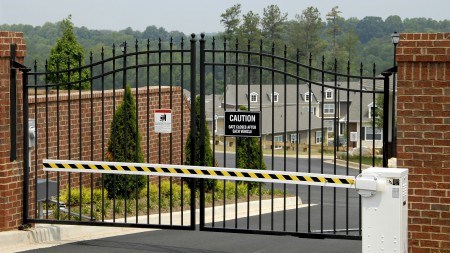Sectional Title home buyers need to look out for a “right of extension” clause in their sale agreement because it could make a big difference to their property’s value in the future.
What is the 'right of extension' clause in sectional title schemes?
Andrew Schaefer, MD of leading national property management company Trafalgar, says: “The right of extension describes the situation when the developer of a Sectional Title (ST) scheme reserves the right, in terms of Section 25 of the Sectional Titles Act, to extend the scheme by building more sections at some later date.
“And the effects of that right could be quite profound. It could mean the return of builders to a settled community many years after its establishment, for example. We have also seen instances where it resulted in the views from existing patios or balconies being obscured by a new building, and where a vertical extension meant that apartments bought as penthouses were no longer on the top floor.”
Strict conditions apply for a developer to register a right of extension, he notes. Among other requirements, the developer must:
- Reserve the right of extension when the original sectional plan is registered;
- Specify the time within which the extra sections will be built;
- State exactly how many extra sections will be built;
- Show where and how they will be built;
- Show the size of those sections and the effect that they will have on the existing participation quotas (PQs)
- Show the external appearance of the new sections.
In addition, once the body corporate has been established, the developer cannot alter any of the plans, specifications or positioning of the additional sections without the unanimous consent of the existing owners.
The Consumers Act
To further protect Sectional Title consumers, says Schaefer, the Act also stipulates that every person who buys into the scheme must be made aware, in writing, of the developer’s right of extension, for as long as that right exists - failing which, they are entitled to cancel the sale.
“This means that if a right of extension has been reserved for 20 years, every sale agreement entered into during that 20-year period must contain a clause disclosing that right, no matter how many times each unit changes hands.”
It is also important for ST owners to know, he says, that reserving the right to extend a scheme on an undeveloped portion of land within the scheme does not confer ownership of that land on the developer.
“The undeveloped portion of the landforms part of the common property and is owned in undivided shares by the members of the body corporate. Section 25 only gives the developer certain restricted rights in regard to that land, and for those rights to be altered, every owner has to agree in writing. This means the developer cannot simply abandon plans to build more sections and decide instead to subdivide the original site and sell off the unused portion.”
And finally, says Schaefer, Section 25 stipulates that a developer who does exercise the right of extension must apply for the new units to be included in the scheme’s ST register within 90 days of completion – failing which the body corporate will have the right to charge levies on those units as if they had been registered anyway.
“For instance, in a Cape Town complex we manage where the developer is building in phases, we recently found that the units in the second phase had been let without being put on the ST register. The developer was not very happy to learn that after 90 days, he would in any case owe the body corporate levies on those units, but this is just one more example of why it is important for ST trustees to appoint a professional and knowledgeable managing agent like Trafalgar.”






